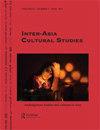社会发展之路——罗莎·卢森堡的帝国主义人类学和社会学研究
IF 0.4
4区 社会学
Q4 ANTHROPOLOGY
引用次数: 0
摘要
摘要尽管罗莎·卢森堡以其对改革主义和政治威权主义的批判而闻名,但她对非西方社会和前资本主义社会的人类学和人种学研究却很少受到关注。本章考察了卢森堡在《政治经济学导论》和1907年至1914年间在柏林德国社会民主党学校撰写的著作中对此所做的工作。在这样做的过程中,它将卢森堡对非西方世界的研究与马克思(1872–1883)的后期著作进行了比较和对比,特别是关于“所谓的资本原始积累”本文章由计算机程序翻译,如有差异,请以英文原文为准。
Pathways to social development: Rosa Luxemburg’s studies on the anthropology and sociology of imperialism
ABSTRACT
While Rosa Luxemburg is widely known for her critique of reformism and political authoritarianism, less attention has been paid to her anthropological and ethnographic studies of non-Western and precapitalist societies. This chapter examines Luxemburg’s work on this in her Introduction to Political Economy and writings composed between 1907 and 1914 at the school of the German Social-Democratic Party in Berlin. In doing so, it compares and contrasts Luxemburg’s studies on the non-Western world with the late writing of Marx (1872–1883), especially concerning “the so-called primitive accumulation of capital.”
求助全文
通过发布文献求助,成功后即可免费获取论文全文。
去求助
来源期刊

Inter-Asia Cultural Studies
Multiple-
CiteScore
0.90
自引率
20.00%
发文量
22
期刊介绍:
The cultural question is among the most important yet difficult subjects facing inter-Asia today. Throughout the 20th century, worldwide competition over capital, colonial history, and the Cold War has jeopardized interactions among cultures. Globalization of technology, regionalization of economy and the end of the Cold War have opened up a unique opportunity for cultural exchanges to take place. In response to global cultural changes, cultural studies has emerged internationally as an energetic field of scholarship. Inter-Asia Cultural Studies gives a long overdue voice, throughout the global intellectual community, to those concerned with inter-Asia processes.
 求助内容:
求助内容: 应助结果提醒方式:
应助结果提醒方式:


